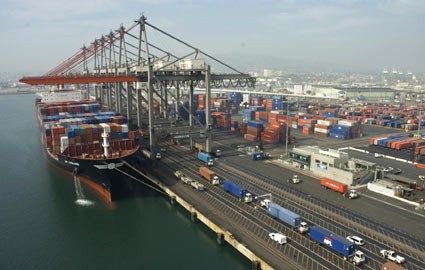- What We Do
- Agriculture and Food Security
- Democracy, Human Rights and Governance
- Economic Growth and Trade
- Education
- Ending Extreme Poverty
- Environment and Global Climate Change
- Gender Equality and Women's Empowerment
- Global Health
- Water and Sanitation
- Working in Crises and Conflict
- U.S. Global Development Lab

Trade and investment are powerful engines that create jobs and drive economic growth, and help reduce poverty.
USAID’s Office of Trade and Regulatory Reform in the Bureau for Economic Growth, Education and Environment) (E3/TRR) works with developing country officials and businesses to reform and modernize trading systems to help create jobs.
The world’s least developed countries comprise 12 percent of the global population but currently account for less than one percent of global trade. Building capacity and expanding trade regionally and internationally are critical for developing countries to establish their own trade opportunities.
Specifically, the Agency works with developing countries to:
- Implement trade agreements;
- Facilitate trade flows; and
- Enhance economic effectiveness.
USAID has provided assistance to more than 28 countries to successfully accede to the World Trade Organization (WTO) over the past decade, helping them to move millions of people out of poverty.
E3/TRR partners with international and local businesses to promote trade reform that leads to changes on the ground and deepens trade and investment opportunities. Building on the 2013 World Trade Organization Trade Facilitation Agreement, USAID launched a public/private global trade alliance to support TFA implementation. This initiative, the Global Alliance for Trade Facilitation (Alliance), will streamline the movement of goods across borders in a commercially viable manner to open up trade opportunities here and in developing countries abroad. The Alliance was launched in 2015.
Trade capacity building (TCB) can have a strong return on investment. An evaluation of Agency TCB programs found that for every dollar spent on USAID assistance, a $42 increase in the value of developing country exports followed within two years.
For more on our trade-related work, see USAID's Trade and Investment page







Comment
Make a general inquiry or suggest an improvement.